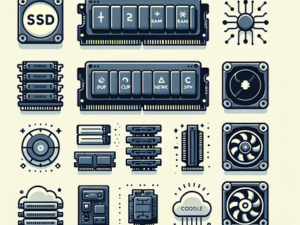 Is your small business heading out of that “small” category? While that’s amazing news for your goals and bottom line, you’ll find some change necessary for continued plain sailing. One of these shifts involves your business’s hardware system, which needs to grow as your company reaches more customers and hires more employees.
Is your small business heading out of that “small” category? While that’s amazing news for your goals and bottom line, you’ll find some change necessary for continued plain sailing. One of these shifts involves your business’s hardware system, which needs to grow as your company reaches more customers and hires more employees.
What can server hardware do for your rising business? Find out below.
Why Upgrade Your Server Hardware for Small Businesses?
Server hardware is your network’s backbone. It might be a high-performing computer that allows other devices to send important information back and forth, such as data, programs, resources, faxes, files, and printing queues.
If they’re running through your server (on the same network), you can connect as many computers as your business needs across different locations. Still, you should optimize this essential hardware and software as your business grows.
Your Business Will Handle More With Increased Processing Power and Storage
When your enterprise started, you probably wielded a smartphone and laptop for all transactions. A single processor can’t handle growing demand, though. A single-core intel processor only tackles one activity at a time, whereas the average computer server has eight.
Even with the highest CPU core capabilities, you’ll need a server with about 32 cores or more. You can store programs and systems like customer relationship management tools with more processing cores. That ensures your employees have access, no matter the endpoint they’re using.
Where do you start? Create a list of all the applications you use alongside daily tasks. That’s the easiest way to determine the appropriate form factors, like server size, for optimal processing power.
Central Control Gives Your Operation Optimal Defense Against Errors and Infiltration
Are all of your devices sharing a network? Infecting the rest only takes one contaminated file on one client’s computer. You don’t want to jeopardize your customers’ personal information or your business’s data, so what’s the solution?
A client/server setup means your small-to-medium-sized business can use the server—a data center—to protect all computers with the right security control system. Your server can make sure all other users have the following:
- The latest patches to keep viruses and malware at bay
- ECC memory detection and virus scans to catch pre-existing issues
- Recent updates for optimal user efficiency
Remote Protection Isn’t Negotiable If You Want Your Business To Thrive
Have you invested in entry-level small business server hardware? If you have employees working from remote locations, it’s essential. This hardware protects on-site and off-site computers by providing virtual private network routes (these give authorized users online access through encrypted tunnels that safeguard against security breaches on public connections).
Your business needs the secure infrastructure’s security-enhanced access for remote users and a built-in firewall, at the very least. Otherwise, cyberattacks are always going to be a threat.
Can you risk your business’s longevity? What about the safety of its employees or clients upon which you’ve built your brand and legacy? If not, your small business server hardware needs a closer look, from traditional hardware to tower servers.




